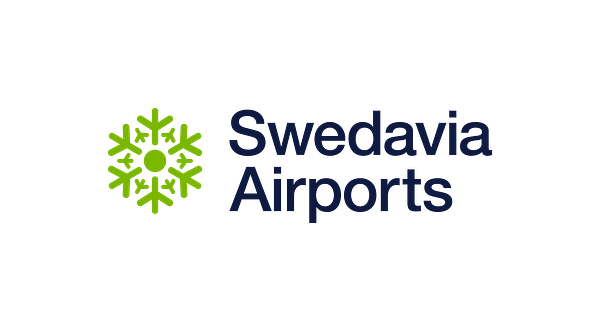Press release -
Swedavia’s Year-End Report 2020: Historic loss due to pandemic – despite early, forceful measures
Swedavia’s Year-End Report for 2020 is dominated by the historic impact of the Covid-19 pandemic on air travel and Swedavia’s own operations. Swedavia entered the crisis with a good financial position and carried out drastic measures, but is nonetheless reporting a pre-tax loss of almost 1.7 billion Swedish kronor. The pandemic has also dominated the start of 2021, with very low passenger levels.
“The conditions for running commercial airport operations have been completely upended by the impact of the pandemic. Our passengers disappeared nearly overnight in mid-March, and we lost a total of 30 million passengers during the year. Not since the early 1980s has air travel in Sweden been as low as in 2020. Almost one year on, we note that we are still in the middle of the pandemic and that travel early in the year is still at historically low levels. However, right now it is still a matter of all of us taking responsibility to fight the pandemic,” says Jonas Abrahamsson, Swedavia’s president and CEO.
For the full year, travel at Swedavia’s airports decreased 74 per cent to 10,255,000 passengers compared to 40,157,000 passengers in 2019. Swedavia’s net revenue totalled SEK 2,494 M (6,235) in 2020, a decrease of SEK 3,710 M compared to the year before. Operating profit was SEK -1,593 M (709).
“Swedavia entered the crisis with a very good financial position. However, the pandemic has had an impact on our business in an exceptional way. We have mainly variable sales revenue and fixed costs. Despite our drastic measures to counter the effects of the pandemic and although we have succeeded in cutting costs by one billion kronor on an annual basis, we are reporting a loss for 2020 and that is the first time in Swedavia’s history,” Jonas Abrahamsson notes.
In line with Swedavia’s mission to provide access, all of Swedavia’s airports have been open during the crisis to provide the travel that has been possible for personal reasons, business, cargo flights and other air transport essential to society. Alongside this, the company has continued its important climate change work, which despite the crisis and economic challenges has been a priority.
“Since it was formed in 2010, Swedavia has worked hard to minimise emissions of fossil carbon dioxide from its own operations and is today considered a world leader in developing climate-smart airports. In December, Swedavia became the first airport operator in the world to reach the goal of zero emissions of fossil carbon dioxide from its own operations. Many operations work together at an airport to make air travel possible, and the next step is for all companies and other organisations that operate at Swedavia’s airports to be fossil-free,” Jonas Abrahamsson adds.
Among the measures implemented, all of Swedavia’s vehicles and engine-powered equipment now run on renewable fuel, and all the company’s buildings, including the terminals, are heated and cooled using green electricity and renewable fuels.
The start of 2021 continues to be dominated by the pandemic, and passenger volume at Swedavia’s airports in January remained at historically low levels. There is potential for a recovery in time for the summer season, which is so important for the aviation industry. But there is at present great uncertainty about the trend, so the vaccine rollout, pandemic and travel restrictions will be critical. All in all, Swedavia expects that 2021 will also be dominated by the pandemic.
“The economic, social and cultural consequences of reduced mobility and access that we have seen over the past year show just how important travel and meetings are for our way of living and thus also how important they will be in order for our societies and economies to recover. Air travel connects the world, and in order to do this in the future as well, the transition to fossil-free aviation will also need to continue even in times of crisis,” says Jonas Abrahamsson.
The complete Year-End Report is available on Swedavia’s website www.swedavia.se.com under "About Swedavia - Financial information": www.swedavia.com/about-swedavia/financial-information/.
For further information, please contact Robert Pletzin, Head of Media Relations at Swedavia, or Swedavia’s press office at tel. +46 (0)10-109 01 00 or press@swedavia.se.
This is information that Swedavia AB (publ) is required to disclose under the EU Market Abuse Regulation and the Securities Market Act. The information was provided by the contact person above for publication on February 10, 2021, at 16:00. CET.
Topics
- Economy
Categories
- arlanda
- sweden
- travel
- stockholm arlanda airport
- malmö airport
- luleå airport
- göteborg landvetter airport
- swedavia
- umeå airport
- kiruna airport
- åre östersund airport
- bromma stockholm airport
- visby airport
The Swedavia Group owns, operates and develops ten airports across Sweden. Our role is to create the access Sweden needs to facilitate travel, business and meetings. Safe, satisfied passengers are the foundation of Swedavia’s business. Swedavia is a world leader in developing airports with the least possible environmental impact. The Group had revenue of about 2.5 billion kronor in 2020 and has nearly 2,600 employees.
